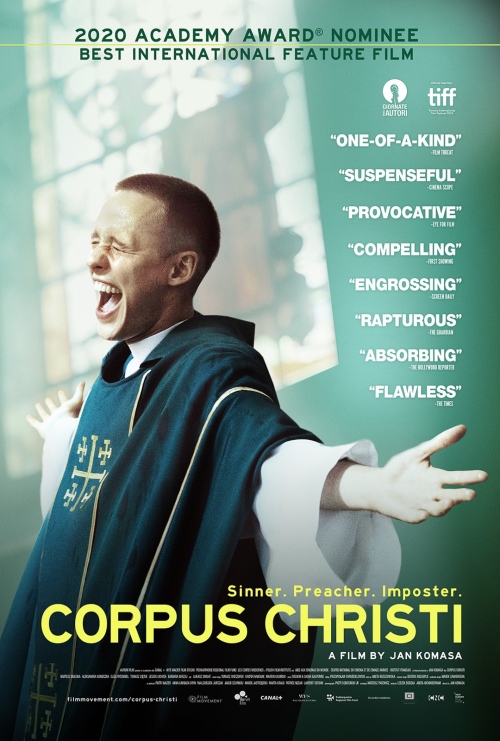Sam Mendes’ 1917 was a bit of a surprise winner at the Golden Globes, where it took the Best Motion Picture – Drama prize and Best Director honors despite only receiving one nomination in any other category (Best Original Score). It feels like the kind of movie that awards voters love – it’s an ambitious war movie, it’s about the struggles of white men, and it has a significant gimmick to it that would appeal to the more technically minded voters – even though the film itself is more competent than brilliant, with a plot that borders on the ridiculous and a gimmick that is ultimately too distracting.
Although Sam Mendes has said the film is inspired by true stories his grandfather Alfred told about his experiences in World War I, the story itself is fictional. It follows two Lance Corporals, Tom Blake and Will Schofield, as they attempt to cross into no man’s land and possibly slip behind enemy lines to deliver a message to a colonel who is planning an attack that will actually lead his 1600 men into a trap set by the Germans. Along the way they meet many of the horrors of war, including multiple dungeon-crawl-like trips through English and German trench networks, run into half the cast of Tinker, Tailor, Soldier, Spy, and somehow manage to avoid all of the bullets flying in their directions en route to their destination.
It is absolutely gripping to watch in what seems like real time, with a script that seldom eases up on the throttle for you to relax. Even when Blake and Schofield are alone, they end up in some sort of danger, and eventually we follow one of the two into a bombed-out village that looks like a death trap for him between the lack of cover and the various Germans stationed around the ruins. When the action stops, there’s usually the threat of action around a (literal) corner, and Mendes has no issue ratcheting up the tension or the extent of the threats to his characters to make the film more exciting – even though Schofield in particular seems to survive multiple incidents that would kill an actual human being. It’s as exciting as any mainstream action film, without the usual crutches of the latter genre.
The gimmick I mentioned above is the use of long takes to make the film appear to comprise one continuous shot, although there’s one very obvious break and a couple of others you’ll probably think you spotted. This isn’t actually new; Birdman tried it and won Best Picture at least in part because of it, and Alfred Hitchcock did it in Rope when there were far more severe limitations on how long any single shot could be. It is immersive, and thus effective at putting you more in the action as you watch, but within a half an hour my eyes were already tired of the constant motion and from trying to shift focus between the characters in the foreground and the endless activity in the background. I was more than ready for the film’s one actual break, where one of the two main characters passes out and the screen goes black for a few seconds, less for the pause in the action – which I generally enjoyed – than for the rest for my eyes.
There’s also a good bit of stunt casting here, as the famous names attached to 1917 each appear for a few minutes, at most. Colin Firth, Mark Strong, and Benedict Cumberbatch – all of whom appeared in the 2011 adaptation of Tinker, Tailor, Soldier, Spy – each have cameos, as does Andrew Scott as the hot priest … no, wait, wrong show, he’s a lieutenant whose regiment has just been hit. None is on screen for very long; the two stars are less well-known, although you’ve likely seen one before: George Mackay (Captain Fantastic) plays Schofield, doing a very credible job in a role where he’s asked to carry a substantial amount of the weight, while Dean-Charles Chapman (Game of Thrones) plays Blake and has more to do in the first third of the film. There’s one woman anywhere in the movie, and I believe only one person of color speaks, a Sikh soldier, even though there were plenty of black and south Asian soldiers in the British army.
As I write this, 1917 has emerged as a favorite for Best Picture, even over what I think are more highly acclaimed films in Parasite, Once Upon a Time in Hollywood, and The Irishman. (Even Little Women seems to be better regarded, but no one thinks it has a snowball’s chance of winning.) I found it generally entertaining, if stylized and a bit absurd, with an ending that simply doesn’t work. The cinematography is remarkable, and seems likely to get Roger Deakins his second Oscar in three years after 13 nominations without a win. It may also win for Production Design; as much as I would like to see Parasite win for the house, the re-creation of the trench networks and some of the battlefields here was a much more significant undertaking. But the overall experience of 1917 felt a little bit like a shell game, pun intended; this isn’t a true story, or even a plausible one, but it’s depicted like one, and when it was over I thought I’d been taken for a ride – especially after the ending. It’s more of a great technical achievement and a good film than a great film in its own right.
